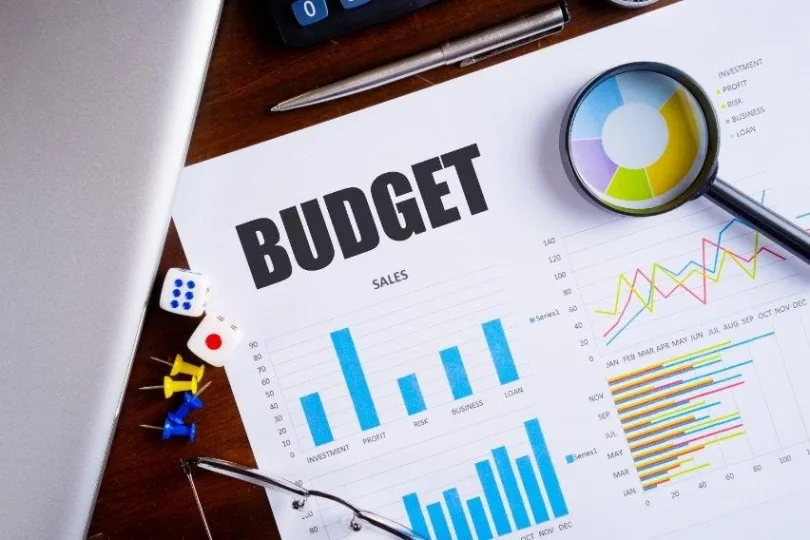In today’s financial landscape, creating and adhering to a budget is more crucial than ever. With rising costs, economic uncertainty, and the challenges of making ends meet, understanding how to manage your finances can lead to greater peace of mind and financial security. Learning the steps to create an effective budget not only empowers you to thrive but also helps in reaching your financial goals, whether it’s saving for a new home, a dream vacation, or retirement. Let's explore the process of budgeting in detail so you can take control of your financial future.
Table of Contents
1. Assess Your Financial Situation
The first step to effective budgeting involves a thorough assessment of your current financial circumstances. Take the time to evaluate your income sources, such as salary, bonuses, or part-time work. Document all your monthly or bi-weekly earnings and understand your cash flow.
- List all income sources.
- Determine your net income (after taxes).
- Understand any irregular income (like commissions or freelance work).
This assessment forms the basis for your budgeting process, allowing you to see where you stand financially before setting your goals.
2. Identify Your Fixed and Variable Expenses
After gauging your income, the next step is to categorize your expenses into fixed and variable costs. Fixed expenses are those that remain constant, while variable expenses can fluctuate from month to month.
- Fixed Expenses: Rent/mortgage, insurance premiums, loan payments.
- Variable Expenses: Groceries, dining out, entertainment, clothing.
By identifying these expenses, you will be able to pinpoint areas where you can cut back and manage your finances more effectively.
3. Set Financial Goals
Establish short-term and long-term financial goals to give your budgeting process direction. Short-term goals might involve saving for a vacation or paying off credit card debt, while long-term goals could include saving for retirement or buying a home.
- Define specific, measurable, attainable, relevant, and time-bound (SMART) goals.
- Prioritize your goals based on urgency and importance.
Having clear goals will inspire motivation and give a sense of purpose to your budget.
4. Choose a Budgeting Method
There are various methods you can employ to manage your budget effectively. A few popular options include:
- Zero-Based Budgeting: Allocate every dollar of your income to specific expenses, savings, and debt repayment, ensuring your budget balances to zero.
- 50/30/20 Rule: Designate 50% of your income for needs, 30% for wants, and 20% for savings and debt repayment.
- Envelope System: Use physical envelopes for different spending categories to restrict how much money you can spend in those areas.
Choose the method that aligns best with your lifestyle and preferences for effective management.
5. Track Your Spending
Once you’ve established your budget, tracking your spending is vital to ensure you stick to your goals. Monitoring where your money goes can help you identify patterns and areas of overspending.
- Use budgeting apps or spreadsheets to log expenses.
- Review your spending weekly or monthly to stay on track.
By staying aware of your financial habits, you can make necessary adjustments and prevent overspending.
6. Adjust as Necessary
Your budget is a living document, and it should evolve with your changing financial situation. If you find that you consistently overspend in a category, consider adjusting your budget accordingly.
- Revisit your goals and spending habits regularly.
- Make changes that reflect your current income and expenses.
This adaptability enhances your budgeting effectiveness and ensures that it remains realistic and achievable.
7. Stay Motivated and Accountable
Staying motivated to stick to your budget can be challenging. Build accountability by sharing your goals with trusted friends or family members or even joining a budgeting group.
- Celebrate small milestones to maintain motivation.
- Consider using visual aids like charts or progress trackers.
Maintaining a support system promotes continuous progress and can help foster good financial habits.
Key Takeaways
Creating and sticking to a budget is essential for financial well-being. Here are the key points to remember:
- Assess your financial situation thoroughly.
- Differentiate between fixed and variable expenses.
- Establish clear financial goals that inspire you.
- Select a budgeting method that suits your lifestyle.
- Track your spending diligently and adjust your budget as needed.
- Stay motivated by celebrating your successes and seeking accountability.
FAQ
- What is the first step in creating a budget?
Start by assessing your financial situation, including your income sources and current expenses. - How often should I review my budget?
It’s recommended to review your budget at least monthly to track your spending and make necessary adjustments. - Can I still have fun while on a budget?
Yes! Include a category for entertainment and leisure activities in your budget to ensure you can enjoy life while managing finances. - What if I go over budget?
If you go over budget, review your spending in that category and identify areas for improvement. Adjust your budget if needed. - How can I stay motivated to stick to my budget?
Set specific goals, celebrate milestones, and share your goals with friends or family for accountability and support. - Is it necessary to use budgeting software?
While not necessary, budgeting software can simplify the process and help you track expenses easily. - What should I do if my income changes?
Reassess your budget to reflect your new income level and adjust your expenses accordingly.
Conclusion
Implementing an effective budgeting strategy can significantly enhance your financial health and well-being. By assessing your financial situation, determining your expenses, setting clear goals, and choosing the right method, you can create a budget that works for you. Remember, staying flexible and accountable is key to maintaining that budget over time. With determination and the right tools, you can achieve your financial goals and enjoy a more secure financial future.



